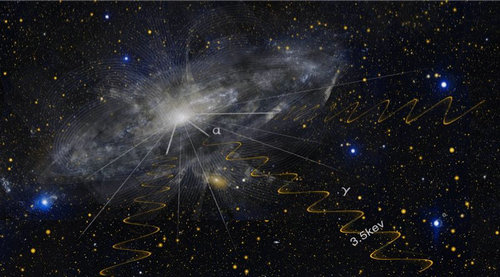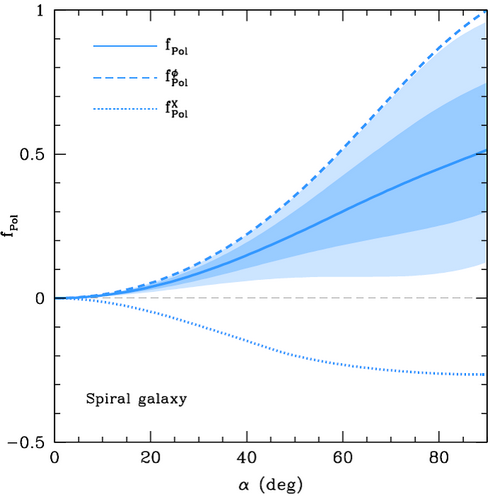Astronomers have been puzzled by the origin of a mysterious X-ray emission with photon energy of 3.5 keV. This emission is found in some but not all galaxies and clusters, and does not match any known atomic spectral line. One possibility is that the line is produced by dark matter decay, but then why is it only seen in some bur not all galaxies and clusters? An interesting explanation is that the dark matter particles do not decay to photons directly, but instead decay to axions, another particle hypothedized by particle theorists, which then convert to photon when it propagates in magnetic field, so we would only see it in galaxies and galaxy clusters with strong magnetic field. But how do you tell whether this idea is correct or not? In a research published by Physical Review Letters, Gong et al. suggested that the idea could be tested with upcoming X-ray experiments such as IXPE, XIPE, and eXTP, because if the 3.5keV photons are indeed converted in the magnetic field from axions, the photon polarization would be in parallel to the magnetic field. IXPE was recently selected by NASA as a SMEX mission to be launched around 2020, while eXTP is still a mission concept under early phase study jointly by Chinese and European scientists. eXTP is expected to have a larger detection area than IXPE for X-ray polarimetry, and is likely able to address the above question.

Axion-photon conversion in spiral galaxy. Credit: Chinese National Astronomy

Degree of polarization as a function of galactic inclination angle.

Address: 20A Datun Road, Chaoyang District, Beijing, China code: 100012
Tel: 010-64888708 E-mail: naoc@nao.cas.cn

